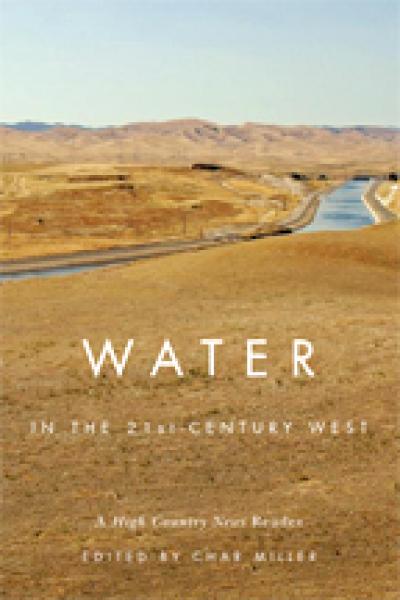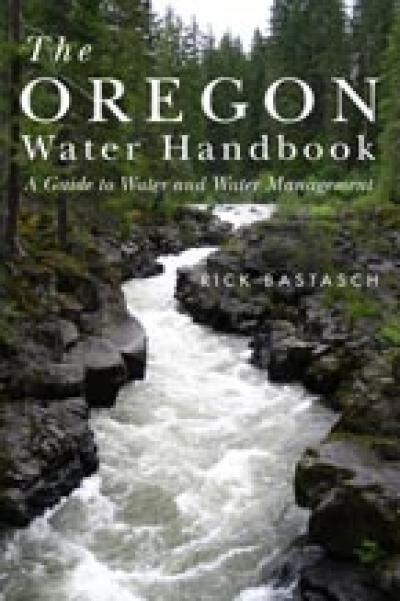
ISBN 9780870718335 (ebook)
Clean Water
Kenneth M. Vigil
Clean Water is a book for anyone concerned about this precious resource who wants to become better informed. In straightforward language, Kenneth Vigil provides a comprehensive introduction to the many scientific, regulatory, cultural, and geographic issues associated with water quality and water pollution control.
Most other books on water quality and pollution control are highly technical and very specific, and are aimed at engineers, scientists, or attorneys. Clean Water, on the other hand, is a comprehensive discussion of the subject intended for a wider audience of science students, educators, and the general public.
Vigil avoids the use of technical jargon and uses many photos and diagrams to illustrate and explain concepts. He provides sufficient detail to educate readers about many broad topics and includes additional references at the end of each chapter for exploring specific topics in more detail.
Clean Water summarizes the basic fundamentals of water chemistry and microbiology and outlines important water quality rules and regulations, all in concise, understandable prose. It describes the basic scientific principles behind water pollution control and the broader approach of addressing water pollution problems through watershed management. There are sections on drinking water and on citizen involvement in water pollution control efforts at home and in the community.
This is a thoroughly revised edition of Vigil's 1996 book, Clean Water: The Citizen's Complete Guide to Water Quality and Water Pollution Control, which was praised by reviewers and has been used as a textbook at colleges and high schools throughout the U.S.
About the author
Kenneth M. Vigil is an environmental engineer with more than 18 years' experience. He as has expertise in water quality analysis, hydrology and hydraulics, stream and flood plain restoration, fish passage design and environmental permitting. In addition to Clean Water, he has written a number of technical and scientific publications on water quality management. He lives in Portland, Oregon.
Read more about this author
Preface and Acknowledgments
Introduction
1. The Water Environment
The Hydrologic Cycle
Natural Conditions That Influence Water Quality
Geology
Climate
Human Activities That Affect Water Quality
Rivers and Streams
Lakes and Ponds
Wetlands
Bays and Estuaries
Oceans and Seas
Groundwater
Atmospheric Water
Summary
Additional Reading
2. Water Chemistry and Microbiology
The Water Molecule
Dissolved Oxygen and Temperature
pH
Organic Substances
Inorganic Substances
Solids
Nutrients
Toxics
Microorganisms
Summary
Additional Reading
3. Sources of Water Pollution
Stormwater Runoff
Domestic Discharges
Septic Systems
Sewage Treatment Plants
Industrial Discharges
Accidental Spills
Water Control Structures
Summary
Additional Reading
4. Preventing Water Pollution
Prevention
Natural Water Pollution Control Processes
Stormwater Treatment
Domestic Treatment
Spill Prevention and Cleanup
Summary
Additional Reading
5. Water Quality Regulations
Federal Regulations
Clean Water Act
Safe Drinking Water Act
National Environmental Policy Act
Endangered Species Act
State Environmental Policy Act
State Regulations
National Pollutant Discharge Elimination System
Water Quality Standards
Water Quality Certification
Wetlands Protection
State Environmental Policy Act
Local Regulations
Construction Related Ordinances
Special District Ordinances
Summary
Additional Reading
6. The Watershed Approach
Watershed Characteristics
Activities Affecting Water Quality
Alternatives for Addressing Concerns
Monitoring the Watershed
Summary
Additional Reading
7. Drinking Water
Drinking Water Sources
Drinking Water Treatment
Drinking Water Concerns
Watershed Disturbances
Groundwater Contamination
Microbial Contamination
Chlorinated Organics
Copper and Lead
Drinking Water Standards
Summary
Additional Reading
8. Getting Personal about Clean Water
Water Quality at Home
Use Environmentally Friendly Cleaning Products
Use Household Water Wisely
Use Household Energy Wisely
Compost Your Lawn Clippings, Yard Debris, and Food Wastes
Recycle and reuse Household Goods instead of Throwing Them in the Trash
Follow Good Car Maintenance Practices
Use Your Automobile Less and Use It More Selectively
Be Mindful of Your Use of Pesticides, Herbicides, and Fertilizers in Home Landscaping
Educate and Involve Your Children, and Set a Good Example
Be Mindful of Runoff from Your Property
Public Involvement
Environmental Organizations
Internet Resources
Summary
Additional Reading
Glossary
Index
"Kenneth Vigil. . .has compiled and reduced the salient aspects of a wide range of topics. . .into lucid, straightforward prose accessible to everyone."
in the Northwest Science




